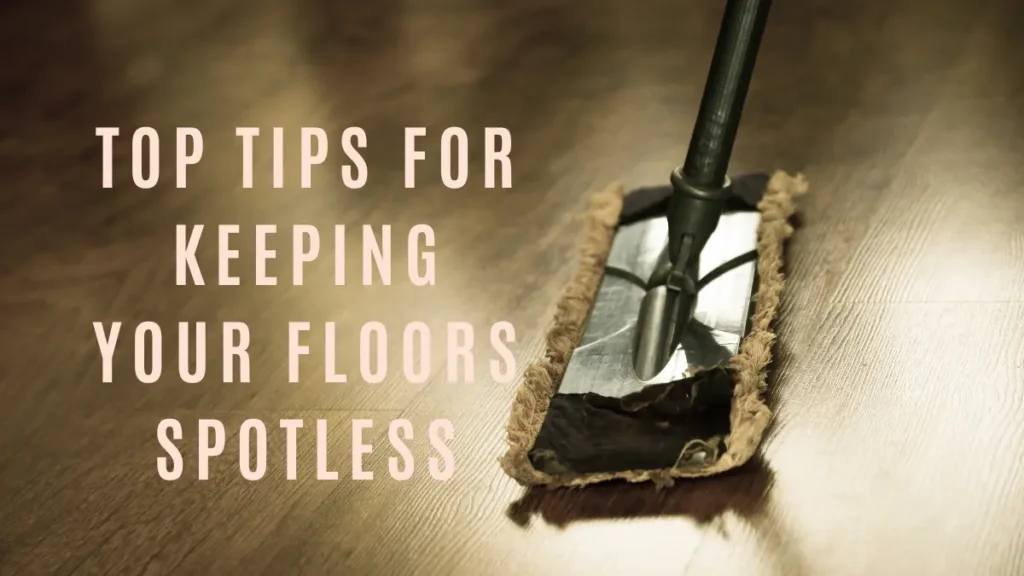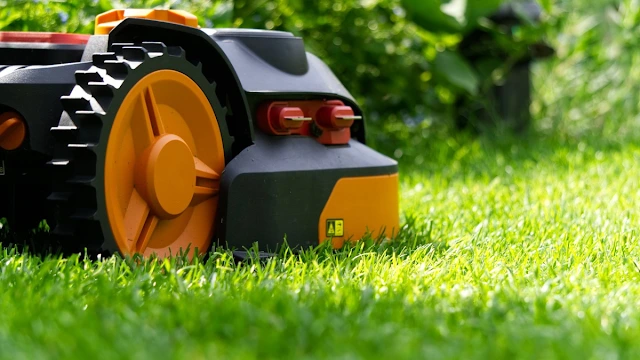
Keeping your floors clean is essential for a healthy home. Dirty floors can gather dust, dirt, and even germs. With a few simple steps, you can keep your floors spotless. This guide will help you clean different types of floors and provide tips for daily care. Let’s dive into the best ways to keep your floors looking fresh and spotless.
1. Know Your Floor Type
Before you start cleaning, it’s important to know the type of floor you have. Different floors need different cleaning methods. Here are common types of floors:
Hardwood floors: Made from real wood. They need gentle cleaning to avoid damage.
Tile floors: Durable and easy to clean but need regular scrubbing to remove grime.
Laminate floors: Made to look like wood but are not real wood. They are easy to clean but can get damaged by too much water.
Carpeted floors: Soft but trap dust and stains easily.
Vinyl floors: Affordable and easy to maintain, but they need the right cleaning products.
2. Sweep and Vacuum Regularly
Dust and dirt can build up quickly on floors. Sweeping or vacuuming every day helps to prevent this. Use a soft broom for hardwood and laminate floors. A vacuum with a good brush setting works well on carpets. For tile and vinyl, regular sweeping prevents dirt from scratching the surface. Try to vacuum carpets at least twice a week.
3. Use the Right Cleaning Products
Using the wrong products can damage your floors. Always check the label on your floor cleaner. For hardwood floors, avoid using too much water or harsh chemicals. A mild soap or hardwood cleaner works best. For tile floors, a mix of water and a mild detergent is ideal. Vinyl floors can handle most commercial cleaners, but avoid using wax or polish unless recommended by the manufacturer.
4. Mop Carefully
Mopping is important for removing grime and sticky messes. But you must mop carefully, especially with wood or laminate floors. Too much water can cause warping. Always wring out the mop before using it. For hardwood floors, use a damp (not wet) mop. Tile floors can handle more water, but don’t let water sit for too long. It’s also important to use a clean mop head to avoid spreading dirt.
5. Protect Your Floors from Furniture
Heavy furniture can cause scratches and dents. To prevent this, place furniture pads under the legs of chairs, tables, and couches. These pads can help protect hardwood, laminate, and tile floors. If you’re moving furniture, always lift it instead of dragging it to avoid damage.
6. Clean Spills Immediately
Spills happen, and it’s important to clean them up as soon as possible. If left too long, spills can cause stains or even damage. For hardwood and laminate floors, use a soft cloth to wipe up the liquid right away. For carpets, blot (don’t rub) the spill with a clean cloth. For tile and vinyl, a simple wipe with a damp cloth is usually enough. Quick cleaning will keep your floors looking new and prevent permanent stains.
7. Keep Shoes Off Indoors
Shoes carry dirt, mud, and germs from outside. One of the easiest ways to keep your floors clean is to ask everyone to remove their shoes at the door. This simple habit can stop dirt from being tracked inside. You can also place doormats both outside and inside the entrance to trap dirt.
8. Use Rugs and Runners
Rugs and runners are great for high-traffic areas. They protect your floors from wear and tear. Place them in areas where people walk the most, like hallways, entryways, and kitchens. Not only do they add style, but they also catch dirt and debris. Make sure to clean rugs and runners regularly to avoid dirt buildup.
9. Polish Hardwood Floors
Polishing hardwood floors can restore their shine and make them look new again. It also helps to protect the wood from scratches. Use a good-quality floor polish designed for hardwood floors. Follow the directions on the label for the best results. Avoid over-polishing, as it can make the floor too slippery.
10. Deep Clean Carpets Regularly
Even with regular vacuuming, carpets can trap dirt deep in the fibers. A professional deep cleaning every 6-12 months will remove trapped dirt and allergens. If you prefer to do it yourself, you can rent a carpet cleaner. Deep cleaning keeps carpets fresh and extends their life.
11. Avoid Harsh Chemicals
Some cleaning products contain strong chemicals that can harm your floors. Always read the label and choose gentle, non-toxic cleaners when possible. For natural cleaning, you can use a mix of water and vinegar for tile and vinyl floors. Avoid vinegar on hardwood floors, as it can damage the finish.
12. Use a Microfiber Cloth
Microfiber cloths are great for cleaning all types of floors. They pick up dust and dirt without scratching. For hardwood and laminate floors, use a dry microfiber cloth to dust. For tile and vinyl, you can dampen the cloth slightly for better cleaning. Microfiber is also reusable, making it eco-friendly.
13. Don’t Forget the Grout
For tile floors, the grout between the tiles can get dirty over time. To clean grout, use a mix of baking soda and water. Apply it to the grout lines and scrub with an old toothbrush. For tough stains, you can add a little vinegar to the mix. Rinse with water afterward.
14. Schedule Regular Maintenance
To keep your floors spotless, create a cleaning schedule. Regular maintenance prevents dirt and grime from building up. Sweep or vacuum daily, mop once a week, and deep clean when needed. Sticking to a schedule makes it easier to manage your cleaning tasks.
15. Know When to Call a Professional
Sometimes, professional cleaning is the best option. If your floors have tough stains, damage, or deep scratches, a professional cleaner can help. They have the tools and knowledge to restore your floors to their original beauty. It’s worth investing in professional cleaning every few years, especially for hardwood and carpets.
FAQs: Tips for Floor Cleaning
Q: How often should I clean my floors?
You should sweep or vacuum daily and mop once a week. High-traffic areas may need more frequent cleaning.
Q: Can I use vinegar to clean my hardwood floors?
No, vinegar can damage the finish on hardwood floors. Use a cleaner specifically designed for hardwood.
Q: How can I prevent scratches on my floors?
Use furniture pads under heavy items, place rugs in high-traffic areas, and keep pet nails trimmed.
Q: How do I remove stains from my carpet?
Blot the stain with a clean cloth and use a carpet cleaner or a mix of water and mild detergent. Avoid rubbing the stain.
Q: Should I hire a professional to clean my floors?
For deep cleaning or tough stains, it’s a good idea to hire a professional. Regular professional cleaning can help extend the life of your floors.
Read More
https://cleaningview.ca/step-by-step-guide-to-cleaning-your-bathroom-floors/
Important: The information provided here in the post is for general informational purposes only. It should not be taken as professional or any other type of advice. Always seek the advice of a qualified professional before implementing this information on your own. Thank you!
Add CleaningView To Your Google News Feed


